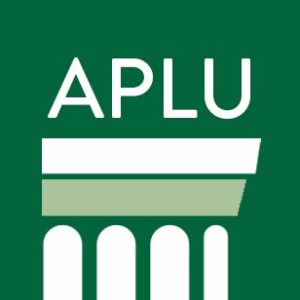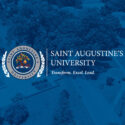 The Association of Public and Land-grant Universities has organized a collaborative effort, called “Powered by Publics: Scaling Student Success,” in which 130 public universities and systems will work together to increase college access, close the achievement gap, and award hundreds of thousands more degrees by 2025. The project is the largest ever collaborative effort to improve college access, equity, and degree attainment.
The Association of Public and Land-grant Universities has organized a collaborative effort, called “Powered by Publics: Scaling Student Success,” in which 130 public universities and systems will work together to increase college access, close the achievement gap, and award hundreds of thousands more degrees by 2025. The project is the largest ever collaborative effort to improve college access, equity, and degree attainment.
The participating institutions will work within “clusters” of four to 12 schools as they concurrently implement innovation and effective practices to advance student success on their campuses. The institutions enroll 3 million students collectively. In addition to their commitment to enhancing student success, the participating universities have pledged to share aggregate data demonstrating their progress to help spur lasting change across the higher education sector.
Each cluster will be tasked with focus areas for their research. These research topics include collaborative data collection systems, financial aid and student financial literacy, and career advising, among others. The participating institutions reflect a diverse representation of enrollment, student demographics, regional workforce needs, and selectivity. The broad diversity of the universities is intended to help create a wide range of student success reforms that can be scaled to any individual institution’s specific needs.
“We have to seize the moment and mobilize institutions to improve not just college access, but also equity in student outcomes and the number of students who earn degrees,” said APLU President Peter McPherson. “That’s what Powered by Publics is all about and why we’re thrilled to work with our member institutions toward such an important national goal.”









I hope the interventions will be designed in part following extensive discussion with students of color regarding their experiences, and that they will be informed by a deep and thorough background history of institutional racism underlying our country’s history.
Certainly this is an exciting and promising initiative. May it be strongly based and mightily successful
I do realize you aren’t conducting the work. I hope you might pass this on to those who are. Thanks